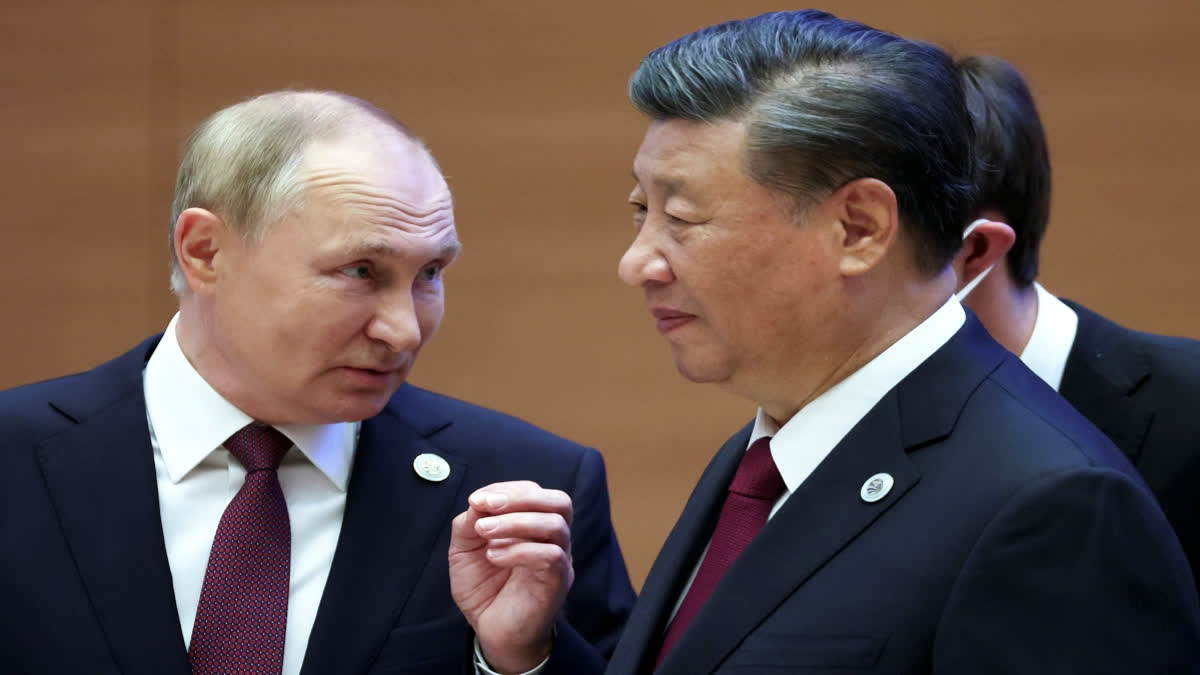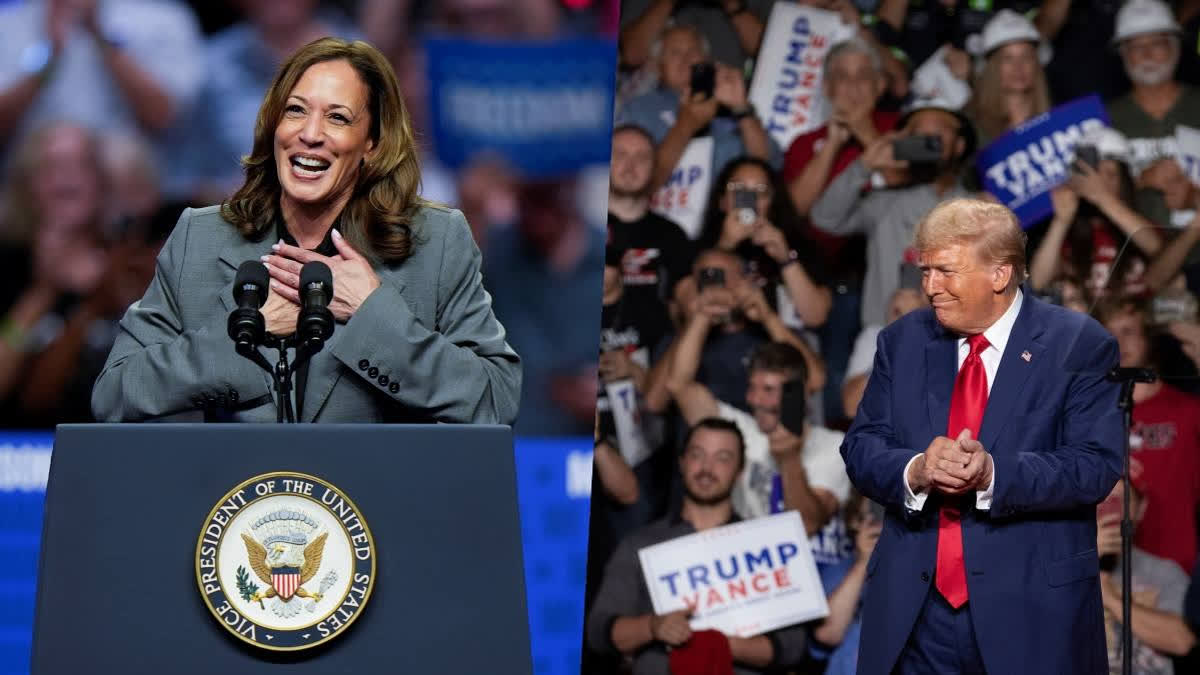The primordial concern of Russia's involvement in the U.S. elections has once again become a focal point of concern, as reports surfaced about renewed discrimination campaigns and cyberattacks to influence the results in the run-up to the 2024 presidential elections. Russia’s continuous interference in the U.S. elections has become a troubling pattern as it has persisted for nearly a decade.
Ahead of this year’s elections, Russian operatives have employed much sophisticated techniques - use of AI-generated deep fakes and highly targeted social media campaigns. These online campaigns are designed to exploit the most alienated issues in America including economic disparity and racial tensions. Meta, the parent company of Facebook and Instagram has banned two Russian state media outlets like RT and Rossiya Segodnya citing as foreign interference and deceptive influence operations. This comes after the US Justice Department charged two RT employees who were found to be involved with amplifying pro-Russian content. Microsoft too has suspended more than 20 active Microsoft email accounts which were created by the now-sanctioned government-funded communication agencies ANO Dialog.
Meta's ban is a result of years of efforts to limit Russian influence since the Ukraine invasion in 2022. Meta is criticized for the delay in its action despite the fact that RT previously had millions of followers on both Meta's platforms, sufficient to influence a huge number of Americans. Antony Blinken, Secretary of State along with other the U.S. officials has increased scrutiny of Russian state media and their involvement in funding military support for Russian soldiers in Ukraine.
As per a new report by the Microsoft Threat Analysis Center (MTAC), not only Russia but Iran has also joined the bandwagon of cyber influence operations ahead of the 2024 presidential election. In its last report, published on August 8, the company detailed how Iranian cyber-enabled operations influence and undermine the Republican Party campaign "through targeted hack-and-leak operations" covert social media personas and hoax the U.S. news sites.
In the last two months, Microsoft has observed an increased shift in Russian influence operation tactics that reflect the changing U.S. political environment. This is specific to targeting the Harris-Walz campaign with actors spreading fabricated videos made to show friction about the new Democratic Party nominee Vice President Kamala Harris.
So far, Russia's efforts are primarily targeted to show the conflict and amplify existing political divisions. There are also some credible allegations that Russian hackers tried to breach the digital infrastructure of both political parties. Though none of the attempts was successful due to high cybersecurity measures. Despite that, Russian-linked accounts were able to disseminate disinformation in the public discourse. This led to confusion and mistrust among the citizens of the United States about the electoral process.
Storms of misleading information
Russia’s specific focus on the Harris-Walz campaign appears to be a strategic move aimed at exploiting any discerning vulnerabilities of the candidates. The report also notes that Russian influence operations did struggle after President Joe Biden withdrew from the 2024 U.S. presidential race. But, since the last two months two Russian threat actors named Storm-1516 and Storm-1679 are using some videos that are designed to discredit Harris and spark controversy around her campaign.
Identified as a Kremlin-aligned troll farm, Storm-1516, according to news reports, produced and launched two inauthentic videos, each of which garnered millions of views. One video showed an attack on a supposed Trump rally attendee by alleged Harris supporters, while another has an on-screen actor stating false claims about Harris’s involvement in a hit-and-run accident. The second video was uploaded on a local San-Francisco based media outlet, which was apparently created a few days before the upload.
On the other hand, the Storm-1679 group aligned with the Kremlin, focused on producing content about the 2024 Paris Olympic Games and publishing false videos about Vice President Harris. One of the videos published on X (formerly Twitter) after Telegram, showed a fake New York City billboard flashing claims about Harris’ policies and gender-affirming surgeries. The X video had more than one million views within four hours.
Deepfake game
Both videos, especially the latter, attracted more noises from all quarters. The video featured a young Black woman claiming that Vice President Kamala Harris left her paralyzed in an accident and she ran away from the site in San Francisco 13 years ago. In the video, the woman is seen sitting on a wheelchair saying that she "cannot remain silent anymore" and that her childhood ended "too soon".
The social media users were quick to note that there was a reason to worry since the KBSF-TV that featured the video didn’t exist before a week and that the website took plagiarized articles from other news websites. Additionally, the new Microsoft intelligence report also pointed out that the images shown in the video on X were taken from online medical journals and the name of the alleged victim was spelled differently. The intelligence report also confirmed that the fabricated narrative had come from a Russian-linked troll farm.
Interestingly, the content highlighted in the report is not created by using generative artificial intelligence tools. Instead, it uses more old-school editing techniques. Clint Watts, general manager of the Microsoft Threat Analysis Center said, "People tend to take in information from sources they don't really know or wouldn't even know to evaluate." On Russia’s motivation to interfere with the elections, Watts opined, "Russia-aligned groups may not necessarily support particular candidates, but they are motivated to undermine anyone who is supporting Ukraine in their policy."
The Microsoft report also explains the collaboration of Russian intelligence actors and pro-Russian cyber ‘hacktivicts’, which promotes allegedly hacked and leaked materials. This, the company believes, could also be a strategy to use as a weapon to undermine the U.S. confidence in the outcomes of November's election. The findings in the report also mention the dramatic changes in the political landscape and that America's foreign opponents have doubled their commitment to manipulate the public's political opinion closer to the elections. Sometimes, this is done through deeply manipulative means. The report also provides insight into how pro-Ukrainian policy in the U.S is also something that Russia is escalating which is translating into increasing attacks on Democratic Presidential candidates.

A trilogy of campaigns
Just like Russia, Iranian groups have also been working on to create division in the election by creating fake news sites. Microsoft found that Iranian groups are rather impersonating activists and using an email phishing attack to target a presidential campaign. Interestingly, Russia and Iran are not the only nation-states using influence operations to influence the election.
Microsoft's report also found that a Chinese-linked influence actor named Storm-1852 used short-form video to create anti-Trump content and criticise Biden and Harris stating that it doens’t appear interesting to support a particular candidate. The company informed that the China-aligned group’s goal is to 'create doubt and confusion among American voters ahead of the 2024 presidential election'. While most Storm-1852 actors pretend to be as conservative US voters voting for Trump, there are a few accounts also created to create anti-Trump content which uses political slogans and hashtags about American progressive politics.
Together, Russia, Iran, and China show the complexities of foreign interference that the US faces ahead of the election. It also faces the need to create awareness for the public to remain vigilant against these threats. However, as the U.S. reaches close to the elections, one should expect the actors to continue cyber proxies and hacktivist groups to amplify misleading content on social media and other channels to influence the people of the country through AI generated videos and slogans to impact the elections.
According to Google’s Threat Analysis Group, in May and June this year, Iran attempted to hack the Republican and Democratic Party presidential campaigns. According to the Federal Bureau of Investigation, office of the Director of National Intelligence and Cybersecurity and Infrastructure Security Agency (CISA), Iran is mostly targeting Trump and the American public with cyber and influence operations.
One of the groups called APT42 is believed to be linked to the Islamic Revolutionary Guard Corps. It has targeted about twelve people associated with the Trump and Biden campaigns. Advanced Persistent Threat (APT) group, APT42 groups are sophisticated cyber threat actors that are used to conduct long-term cyber espionage campaigns. They often function with a specific target in mind. Hosting malware, phishing pages, and malicious redirects are some of the email phishing campaign tactics used by APT42.
As per the U.S. law enforcement agencies, Iranian hackers tried to influence the outcome of the presidential election by sending emails to the team of President Joe Biden’s then re-election campaign while the jackets stole materials from Republican nominee Donald Trump. “Iranian, malicious cyber actors have continued their efforts since June to send stolen, non-public material associated with former President Trump’s campaign to the U.S media organizations," the FBI, CISA and Office of the Director of National Intelligence said in a statement.
China on the other hand, is less active than other two counties who are trying to influence the U.S. election results. The U.S. intelligence believed that China “probably doesn’t plan to influence the outcome of the election.”

According to senior political and foreign affairs strategy commentator, Asad Mirza, in the last four years, Iran’s cost of running the hacking campaigns has been considerably down compared to other countries. “The Iranian government has its own technocrates and scientists who are very tech savvy and the Iranian position has always been anti-U.S., so that could be a reason for Iran to meddle with the U.S elections. For China, it played a very strong part in influencing the last elections and this time too it may start its own campaigns during the last phase of the U.S elections in November. No one can believe China’s words, they may say no but will come out aggressively. That has been the history with China,” said Mirza.
So far, all three countries have denied carrying out any interference operations ahead of the U.S. elections.
Blast from the past
Back in 2020, Russia's interference efforts were equally robust ahead of the presidential election. At that time, Russia focused on spreading disinformation that supported the former U.S. President Donald Trump while also attempting to undermine the public's confidence in the electoral process. Russian troll bots were active on social media spreading conspiracy theories about electoral frauds and COVID-19 pandemic. The hacking attempts, however, were not successful in 2020 as those in 2016. During that time, Russia appeared to be committed to meddling in the U.S. democracy by putting significant efforts to breach the digital infrastructure of government agencies and political parties.
The 2016 presidential election was one of the significant Russian interference instances when the Kremlin assisted Donald Trump by damaging Hillary Clinton’s campaigns. This was later confirmed by intelligence agencies. According to the intelligence reports, Russia has used a combination of cyberattacks, including hacking of the Democratic National Committee and strategy of manipulating social media. Russian bots disseminated several emails which influenced public discourse.
The 2016 election is often claimed as the beginning of Russia’s strategic interference in the U.S. elections that eroded trust in the country’s democratic institution, which still has implications on American politics. Similarly, the 2018 midterm elections were also impacted, may be not as robust as 2016 but were not left free from Russian interference. During those elections too, Russia continued to spread misinformation to create confusion and mistrust in the American electoral process. At that time the focus was around social issues and influencing voters through misleading information.

"They might not be able to impact the results of the election but they can be a divisive factor during the election or disrupting factor. As far as Russian capacity is concerned, it has been meddling with the U.S. elections since 2016 before Trump came into power. The same happened during the mid-term elections in 2022. The tactics may influence the election process but it won’t have a major impact on election results. American cyber security forces and other social media platforms are trying to take adequate actions to squad the attempts from Russia followed by China, and Iran. However, Russia’s capacity surpasses both China and Iran which are not major threats to the U.S. but Russia is,” said Mirza.
"On the other side, we also have to be aware that as far as the access is concerned they are still going through a transition period so in a way U.S. won't be much able to corner the Russian hackers. It is because, X (formerly Twitter) started a campaign to identify deepfakes on its platform but that has not been sustained and the manner in which Elon Musk is siding Trump, I feel he may be helping Trump by promoting anti-Biden material on his platform. So far, only Meta has come out stating to take precautionary measures but the manner in which Musk has catapulted his position toward Trump, who earlier he was a harsh critic of, now, in the current elections, he has come across as a strong supporter of Trump," he opined.
Calculated disruption
Over the years, Russia’s interference in the U.S. elections have evolved from direct cyberattacks to sophisticated operations - mostly fake news, deep fakes and manipulating public emotions through fake online campaigns.
The effect of Russia’s interference is not only affecting electoral outcomes but also polarizing U.S politics as well as creating distrust among people of America in democratic process. Russia’s interference is also aimed at jeopardizing the western democracies and march ahead with its interests to be on the global stage by all means. Russia, in a way, is creating calculated disruption that will continue to pulsate not only through American politics but beyond its boundaries.
"There are many other issues. We also have to say, whose campaign Russian hackers are supporting. As of now, they are supporting Trump's campaign and trying to undermine Kamala Haris’ efforts. The first priority of Vladimir Putin’s strategy is that if Trump comes into power as the next American president, then they feel that America may step back from supporting Ukraine and may influence other countries to do the same. This way Russia may achieve its target of submission of Ukraine. Russia knows very well that at this point of time, it can’t try to undermine the U.S to certain extent that it may emerge as the only super power on the world map because at the moment Russian economy is under stress, technical processes are also in stress and the attention of Russian leadership is focused on the Ukraine war and they are much less focused on American elections. Though, their technical team they have deployed is working to serve the Russian interest and further the political goals of Putin," Mirza explained.
Although, one can't predict the elections and with the ongoing campaigns to polarize the Presidential elections, the popularity and ratings that the candidates are enjoying are a considerable factor to say who will be the next President of the United States.
"At this moment, Kamala Harris is leading the march. Ultimately it's the American public and they might completely change their perception and reaction. It’s quite a tough contest of ideologies as well. It is indeed for American democracy. Americans are happy with those presidents who are able to manage the economy in a prudent manner and let the populist uphold luxury and secularism. They are not bothered about global issues like Indians. Americans’ inner focus to a large extent, don’t hold Biden as a suitable candidate because of his age and the certain decisions that he has taken and if their living standards also come down, they basically change their opinion," said Mirza.
(With inputs from the Associated Press and Microsoft Threat Analysis Center)



